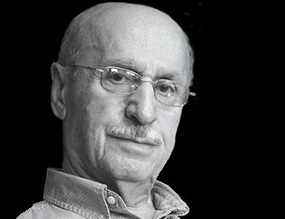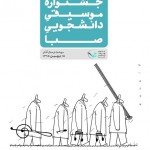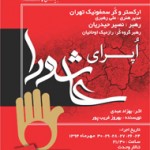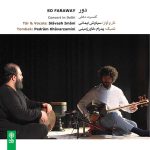
Hossein Aslani, Iranian pianist residing in the US, passed away due to cancer in late January 2020. His last musical activity was an article written for Harmony Talk entitled “Iran amidst musical struggle” in 2016, his memoir entitled “I Play You Again” in the same year and his album “Symbolic Emotion” published by Arganoun Publications in 2014. Here is a brief biography of Hossein Aslani according to his own website:
Hossein Aslani was born in the village of Shahghaji in Gilan, Iran in 1936. After elementary education, he moved alone to Tehran. While completing his high school years and surviving for sustenance on labor-intensive daily jobs, he entered the music world by mastering accordion.
 Listen to “Hope and Hopelessness” for Piano
Listen to “Hope and Hopelessness” for Piano
Recommended by a close clarinet virtuoso friend the late Hossein Shahverdi, he entered the international conservatory of music in Tehran in Vahdat Hall in 1958. He was trained under the tutelage of renowned western classical music scholars of the era in piano by Tatania Kharatian, music theory and solfeggio by Fereidun Farzaneh, and harmony and orchestration by Houshang Ostovar. Hossein Aslani was also invited to join the national radio Iran as a composer, arranger and pianist in 1965.
 Liaten to a part of the String Quartet
Liaten to a part of the String Quartet
In an era when Pop music was still regarded as an artistic classic genre, Aslani was instrumental in popularizing it among the youth in particular, through his innovative polyphonic and independent melodic lines. He employed wind instrument ensembles, electric guitar and percussion. This was manifest through performances by the late vocalist Mohammad Nouri and many other singers of the era during 1968-71. Concurrently, with his professional endeavors, he has tirelessly continued piano instructions since 1960. Aslani’s first written composition was a piece for piano and orchestra, conducted by Feredun Shahbazian, and performed by the Grand National Radio Orchestra in 1971.
 Listen to “A Shadow at Midnight” featuring Mohammad Nouri (singer)
Listen to “A Shadow at Midnight” featuring Mohammad Nouri (singer)
This popular notoriety prompted Aslani’s involuntary emigration to New York U. S. A. and his trials and tribulations that followed in a foreign land. Committed for life to contemporary music as anchored on his intrinsic affinity and love for music, he earned his master’s degree in music composition from the State University of New York Conservatory of Music specializing in contemporary music and orchestration. His lifelong cooperation with his university mentors as Professors Dary John Mizelle and Joel Thome for 20th century harmony, Suzanne Farrin for music literature and critique, Steven Lubin for classic, Brady Brookshire and Stuart Isakoff for music analysis as perceived by the musicians and listeners, has continued.
 Listen to “Moments of Solitutde” featuring Aref (singer)
Listen to “Moments of Solitutde” featuring Aref (singer)
His work has remained most inspired by the folkloric music of Gilan and other regions of his motherland Iran, combined with nostalgic melancholy of his early years as well as his extensive research of the works of renowned Master contemporary composers Charles Ives, Aaron Copland, Igor Stravinsky John cage, Bella Bartok, Leonard Bernstein and Houshang Ostovar. Aslani’s unique approach to contemporary music is deemed progressive; nonetheless, emanated from noble well rooted origins. This has thus far yielded a number of pieces and proses that are multidimensional and unimaginable at times.
Hossein Aslani’s firm belief in humanity and community, nurtured by his beloved mother Gilaneh, is heralded through his lifelong philanthropy, altruism and voluntarism.









